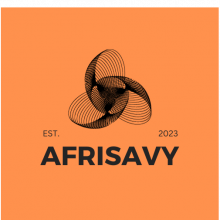
There are 23 Companies in Kenya
that provide Flutter Development Services!
Kenya’s ICT sector was worth an estimated $11.19 billion in 2025, with a CAGR 2025-2030 of 5.91%. The telecommunications segment accounts for the vast majority of this, at around $3.79 billion. Other important contributors are broadcasting, data center services, cloud, IT, and BPO.
Discover Top IT Companies in Kenya specialized in Flutter and other related services. Find the best IT service providers for your projects.
Flutter is an open-source UI (User Interface) framework developed by Google for building natively compiled applications for mobile, web, and desktop from a single codebase.
It was officially introduced by Google in May 2017, although its development began earlier as an internal project named "Sky." It aimed to address challenges in cross-platform mobile app development by providing a consistent and high-performance framework for building native-like apps on iOS, Android, and other platforms. Flutter has since gained significant traction and popularity in the developer community.
Handpicked companies • No obligation to hire • 100% risk-free
Featured Companies in Kenya
This month, the following Flutter Development companies managed to provide an outstanding service and support. It's worth taking a look.
Fire Bee Techno Services is an ISO-Certified Blockchain and AI Development Company In india and across the world with 13+ years of experience.
Mobirevo is a Leading custom software development agency focused on web, mobile app development & saas application development.
Tech Company, Expertise in Design, Development an Security
Explore Top Flutter Development Companies in Kenya
3techagency drives growth with tailored digital solutions, focusing on enhancing brand impact, user engagement and online visibility.
Services:
Kenya’s web design partner. We turn digital struggles into success with the E.L.O.N Method. Affordable, expert growth we walk with you.
Services:
Software Development firm offering Android &iOS Mobile Application Development, Website Design, M-Pesa, Visa & Mastercard Payments Integration.
Nelium Systems is a full-service digital agency helping brands grow through web design, SEO, branding, and smart marketing automation.
Services:
Goymarey empowers businesses with innovative,scalable and secure IT Solutions,bridging technology and success in an ever-evolving digital word.
Africa's sustainable tech innovator, making premium software development accessible while driving positive social and environmental impact
Services:
Uppfy Digital is committed to elevating your digital presence
Afrisavy is a leading SEO agency in Nairobi, Kenya, offering a comprehensive range of digital marketing services, including SEO and others
Services:
Premier digital marketing agency in Kenya. Boost your online presence with our expert SEO, web design, social media, and PPC services
Services:
Top Web & App Development Company in Kenya | Sanga Tech Solutions - AI & Digital Experts.
We are information technology architects, helping businesses with custom web and mobile solutions, Data Managment and analytics.
We craft excellence through web, mobile, and custom digital solutions in all sectors from Fintech to People Management we have a proven track record
We are a leading web design agency in Nairobi.
Services:
We help you grow your business, generate new leads and increase revenue through strategic digital marketing solutions.
Services:
We do custom software right
Digital Marketing Agency & Training
360 Studios Kenya, is a company based in Nairobi Kenya that specializes in Logo design for businesses.
Services:
We're professional full-stack web & software developers,IT experts in Nairobi, providing customer-centric, mobile-friendly, affordable & creative web
Services:
Filter Flutter Development Companies in Kenya by Cities
Find the right tech company near you or from a specific city. Some of the best companies might be located in smaller cities.
Find more Flutter Development companies around the world
TechBehemoths is the world's most advanced and user-friendly platform to match IT Companies with real clients without hustle.
The Kenyan ICT Industry: Data & Insights
Kenya’s ICT sector was worth an estimated $11.19 billion in 2025, with a CAGR 2025-2030 of 5.91%. The telecommunications segment accounts for the vast majority of this, at around $3.79 billion. Other important contributors are broadcasting, data center services, cloud, IT, and BPO.
Kenya’s combination of relatively stable governance, strategic location, and young and innovative population has made it an attractive destination for multinational companies. Several notable firms, such as Oracle, IBM, Microsoft, Cisco, HP, and SAP, have offices in Nairobi, and some have based their entire African operations from these offices.
Why You Should Work With Kenyan IT Companies
Digital service providers in the cloud and BPO markets are primarily involved in the provision, rather than the development, of services, whereas Kenyan firms are more prevalent in the fintech and e-commerce markets. The physical technology required for the delivery of digital services is typically imported, and it is not clear that Kenya could produce these products more efficiently.
A key strength in the digital services market is the acceptance of mobile services. Any consumer solution entering the market would have to be mobile-compatible. Mobile healthcare services are expected to grow particularly rapidly as the sophistication of these offerings increases.
What to Pay Attention to When Working With Kenyan IT Companies And Web Agencies
On the consumer side, it is vital that any proposed digital service offering be mobile-compatible due to the prevalence of mobile usage in Kenya. Furthermore, smartphone penetration in the region is steadily increasing, thus increasing the sophistication of viable digital service offerings.
Given the acceptance of fintech by the Kenyan population, a possible route to entry in the consumer market is to acquire one of the many smaller fintech firms in the industry. This would resolve some of the primary barriers to entry, most specifically bureaucratic red tape and a lack of local knowledge.
On the corporate side, the most effective route to entry is likely through partnerships with smaller local resellers. This model is already popular in the Kenyan market. A key differentiating feature here will be how well the service adapts to the Kenyan market.
How Reliable Are Kenyan-based IT Companies?
Considered to be one of the biggest African IT hubs, Kenyan web agencies and IT companies compete only with Ethiopian ones in terms of reliability. As many foreign companies have already invested and thus developed the local IT infrastructure and industry overall, Kenyan IT companies find it easier than other neighboring countries to enter the global market and provide their services at accessible prices.
How Kenyan IT Industry Relate to the Neighboring Countries?
Kenya is actively trying to establish itself as a key ICT hub in the East African region. The country appears to be making good progress in this regard, helped by having a strong connectivity infrastructure and a young, innovative population. Despite this, the country currently faces considerable political uncertainty, and issues surrounding the transparency of tenders remain a major barrier to growth.
Although Kenya’s score for the metric measuring the economic impact of ICT is not high in absolute terms, it ranks 54th in the world. This supports the conjecture that businesses, government, and consumers will be receptive to new technologies, as ICT has already had a substantial impact on the Kenyan economy.
What is Flutter and what are its benefits for your projects?
Flutter is an open-source UI (User Interface) framework developed by Google for building natively compiled applications for mobile, web, and desktop from a single codebase.
It was officially introduced by Google in May 2017, although its development began earlier as an internal project named "Sky." It aimed to address challenges in cross-platform mobile app development by providing a consistent and high-performance framework for building native-like apps on iOS, Android, and other platforms. Flutter has since gained significant traction and popularity in the developer community.
Flutter has seen rapid adoption, thanks to its key advantages, such as a single codebase for multiple platforms, a rich set of pre-designed widgets, and fast development cycles. It has found use in various industries, including mobile app development, web development, desktop applications, and even embedded systems. Some notable apps developed with Flutter include Alibaba, Google Ads, eBay Motors, and more. Its usage continues to grow, and it has a strong developer community and ecosystem.
Flutter is versatile and suitable for a wide range of projects:
- Mobile Apps: Flutter is commonly used for developing mobile applications, including consumer apps, business apps, e-commerce apps, social media platforms, and more. It provides a native-like experience on both Android and iOS.
- Web Apps: Flutter can be used to build web applications, allowing developers to target browsers as well. This is still in the experimental phase (as of my knowledge cutoff date), but it shows promise for building responsive web interfaces.
- Desktop Applications: Flutter supports desktop platforms like Windows, macOS, and Linux. Developers can create desktop applications for various purposes, including productivity tools and utilities.
- Embedded Systems: Flutter can be used to create user interfaces for embedded systems and IoT (Internet of Things) devices, providing a consistent look and feel across different hardware.
- Custom UI Components: Flutter is often used to build custom UI components and widgets that can be integrated into larger applications, providing a cohesive design language.
Hourly rates for Flutter developers can vary significantly based on factors like location, experience, project complexity, and demand. On average, Flutter developers may charge anywhere from $25 to $150 or more per hour. Rates tend to be higher in regions with a higher cost of living, such as North America and Western Europe, and lower in regions with lower living costs, such as Asia and Eastern Europe.
It's important to note that more experienced and specialized Flutter developers with a strong track record may charge higher rates. Additionally, some developers or development agencies may offer fixed-price contracts for specific Flutter projects, which can vary widely based on the project's scope and requirements.
When hiring Flutter developers, it's essential to consider factors like their expertise, portfolio, and the complexity of your project. Getting multiple quotes and conducting interviews can help you determine a reasonable rate and find the right developer or team for your specific needs.
We have also written an extensive research of what skills you should be looking for when hiring Flutter developers.






















